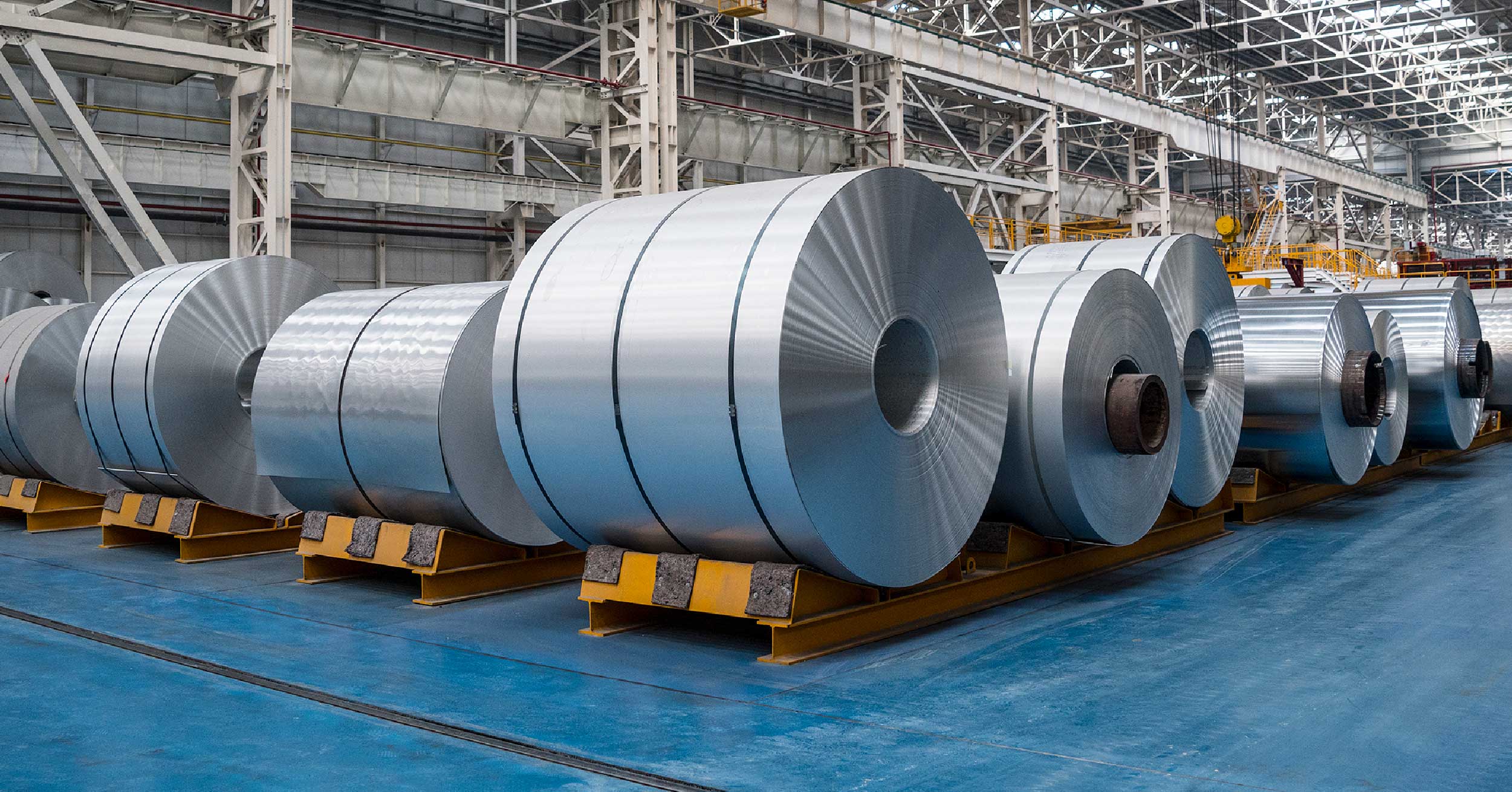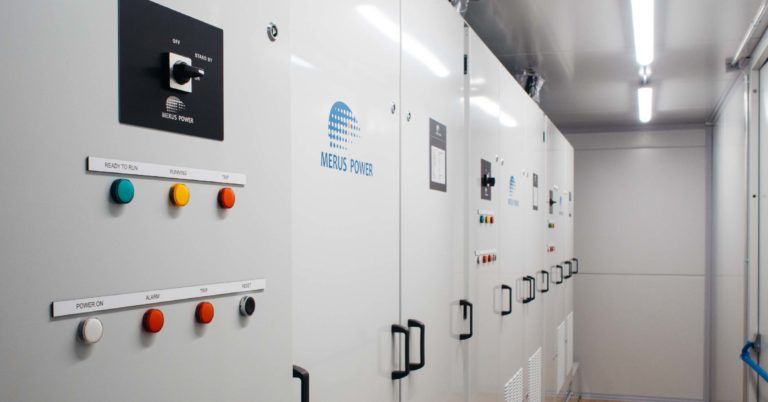Merus® STATCOM – Static Synchronous Compensator
Merus® STATCOM is a modular and modern Static Synchronous Compensator for demanding applications and heavy industrial loads.

In rolling mill applications, as metal slabs, blooms, or billets pass through the mill rolls, the electrical motors driving these rolls must generate higher torque. This increased torque demand also raises the need for reactive power due to the drives’ performance characteristics, causing a voltage drop at the load bus. Since motor torque is proportional to voltage, any voltage drop limits torque and reduces material throughput. By compensating for reactive power, voltage drops are eliminated, allowing for higher torque and greater productivity. Additionally, fluctuating voltage can lead to nuisance trips, disrupting operations, and poor power factor can result in reactive power penalties, impacting plant efficiency and costs.
The customer’s aluminium factory has four different rolling mills: one hot mill that operates continuously, two cold mills and one reversing mill. The loads are fed with parallel transformers that can feed the loads individually or together. They suffered from voltage unbalance and low power factor caused by high reactive power demand of the rolling mills.
The high reactive power demand of the plant’s aluminium manufacturing process increases the electric power system losses, reduces the power transmission and distribution capability of the grid and maintains a voltage profile outside permissible limits. In addition, power quality disturbances like voltage sags could make the rolling mill motor drives disconnect, causing several economical and technical problems for the plant operator.
The mills can be in operation at the same time or different times, creating a mix of possible load scenarios. This means that the loads can fluctuate heavily within a day and the power quality of the plant must be ensured with a flexible solution. Traditional passive solutions are prone to resonances in transient conditions, which means that a dynamic compensation solution is needed.
Merus Power was chosen to deliver two identical 16 MVAr Merus® STATCOM systems to the site. Merus Power’s scope of delivery included a total of 16M2000 STATCOM modules (2 MVAr per module) and two stepdown transformers installed at 15 kV bus, 2 Control & Protection systems, cooling systems, two detuned capacitor banks, spare parts, and complete system engineering in a containerized solution.
The detuned capacitor banks were both rated at 22 MVAr, which means that the installed Merus® STATCOM solution can control reactive power seamlessly and in real-time between 12 MVAr (capacitive) and 74 MVAr (capacitive) for an undefined period. Merus® STATCOM provides real-time reactive power compensation and active harmonic filtering in demanding applications. This minimizes voltage variations and mitigates flicker caused by heavy industrial loads.
Metallurgy – Aluminium factory / Rolling mill
Indiana, United States

Merus® STATCOM is a modular and modern Static Synchronous Compensator for demanding applications and heavy industrial loads.
The compensation performance was verified with measurements during a site visit after the system was commissioned. The measurements showed that even in the most demanding load situation, when all loads were fed by a single transformer, the Merus® STATCOM was able to minimize voltage fluctuation and increase the power factor of the plant network. The fast response time of Merus® STATCOM enabled the voltage fluctuations to stay within a required 400 V (2.7 %) and power factor over 0.9850 and up to 0.9997 for all loading scenarios.
In addition to delivering the STATCOM system, Merus Power’s engineers have designed the system uniquely, allowing both identical systems to work in stand-alone mode and master/slave mode, depending on plant operating scenarios. This unique approach increases the redundancy of the entire plant’s electrical system.
Please contact one of our salespeople with questions and inquiries.


Sales Manager, STATCOM & SVC,
for Renewables, Global

Senior Sales Manager,
DACH, Benelux, France, APAC

Regional Sales Manager,
Middle East
